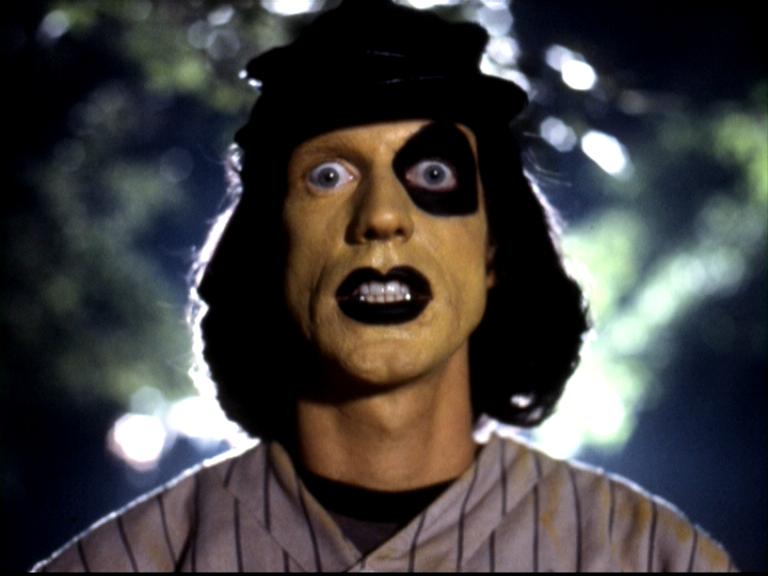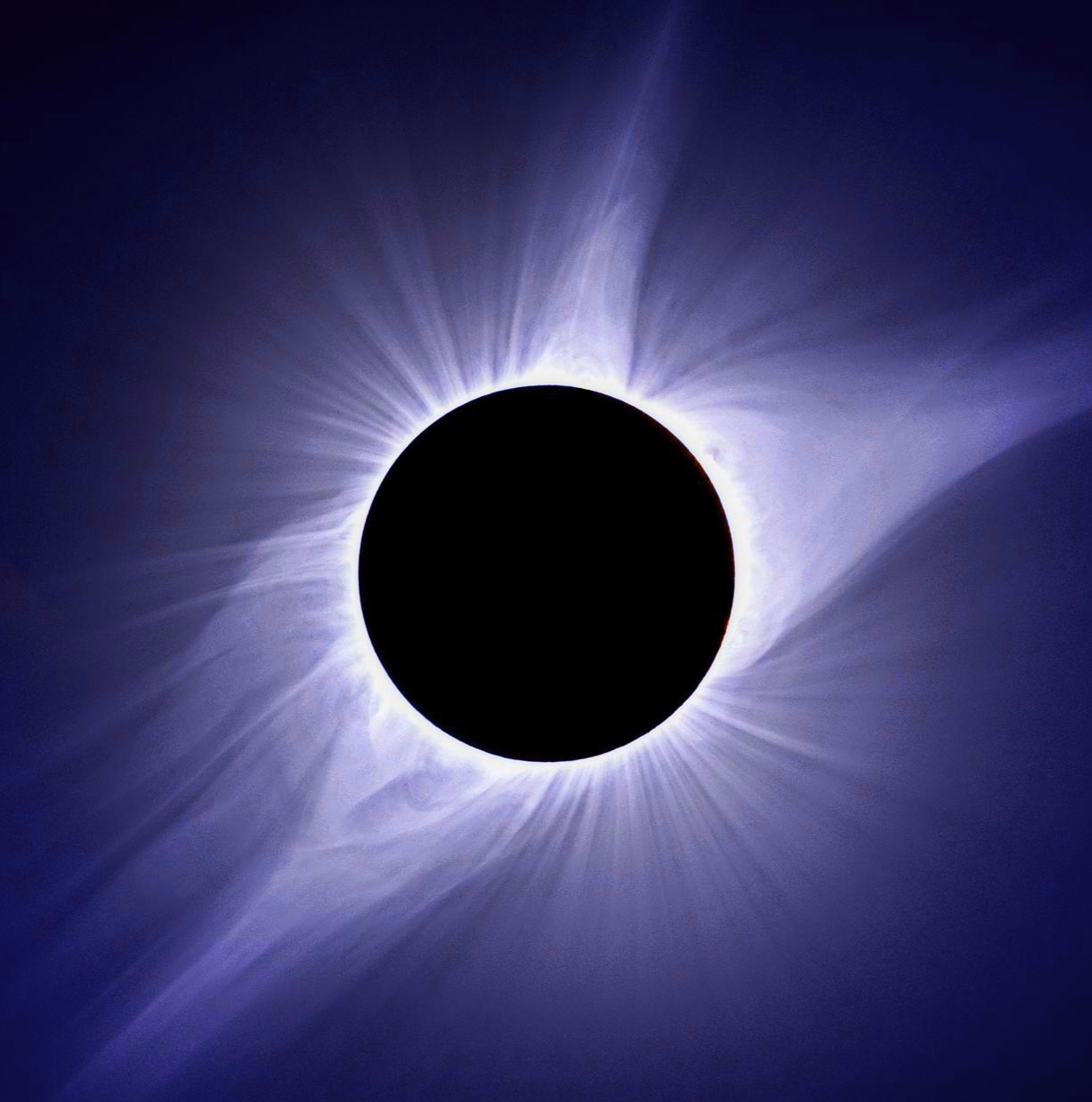If you do, then what exactly defines a soul in your view?
I do not. When the brain stops working it’s just the end. I wasn’t raised religious and I’ve never ‘felt’ anything spiritual. I respect people who do, but I just don’t - it doesn’t make sense to me.
Not that I’ve a choice but I do feel a sense of calm in the fact that when I die there’s nothing. We’re just a blip in a never ending universe.
It was here long before us and it’ll continue to exist long after us. It’s initially a very terrifying truth but eventually it becomes our most comforting truth.
No
I was raised Roman Catholic.
A soul is a concept to make death less scary.
All life is an organic computer. When something dies, the computer is off, never to be rebooted again. That’s ok though.
A soul is a concept to make death less scary.
Or more scary, if one doesn’t do as one is told.
deleted by creator
Nope. There’s no spiritual anything. The whole universe is kinda magic on its own, why people have the need to make up bullshit is beyond me.
Souls don’t exist, you’re just your body (and brain), try to enjoy the life you have, there will be nothing else afterwards.
No.
No, how would it work with Alzheimer’s, brain tumours and other things that affect behaviour?
Not trying to argue at all, just spitballing off your thoughts: I feel like (assuming souls are things that exist) the brain is the hardware and the soul is the software in this scenario. If your computer’s mother board develops a problem, the data on your hard drive still exists and works; the hardware just can’t compute.
That all being said I’m an agnostic and I don’t really know the answer to OP’s question. I’ve kinda always assumed there was some star trekish we-are-just-energy thing going on. But I ultimately accept that we don’t know and can’t know and won’t know until we do.
Your example is flawed because the hard drive is also hardware and can also develop problems aside from everything else. I feel like a closer match would be information stored on the cloud, but that’s just someone else’s hard drive, so… Yeah, I find the concept of a soul very weird.
Your example is flawed because the hard drive is also hardware and can also develop problems aside from everything else. I feel like a closer match would be information stored on the cloud, but that’s just someone else’s hard drive, so… Yeah, I find the concept of a soul very weird.
Your example is flawed because the hard drive is also hardware and can also develop problems aside from everything else. I feel like a closer match would be information stored on the cloud, but that’s just someone else’s hard drive, so… Yeah, I find the concept of a soul very weird.
Your example is flawed because the hard drive is also hardware and can also develop problems aside from everything else. I feel like a closer match would be information stored on the cloud, but that’s just someone else’s hard drive, so… Yeah, I find the concept of a soul very weird.
Nope.
The mind is what the brain does; when the brain stops doing, the mind stops being.
Answering my own question: I’ve always identified as an atheist but I still believe there’s more to us than just atoms.
In my view, there’s something in our consciousness that gives you identity and defines who you are, why you perceive the flow of time and the sequence of events that happens to a specific person (you). It’s why from my perspective I’m the main character of my story and everyone else is essentially an NPC.
This is what I would call a soul. I don’t believe they’re immortal or anything, however.
I’d imagine you’re rather unique. I have a hard time imagining atheists believing in something as nebulous as a soul.
EDIT: Please don’t downvote OP, if anything this is a more interesting discussion thread than just “No, we’re just meat and electricity”
Atheists by and large don’t outright reject the possibility of the unknown. They just don’t hang their whole lives on it and make up stories to make it less unnerving to contemplate. The fact is we can’t know everything, and our collective knowledge as a species probably barely scratches the surface of reality. But we can rule certain specific use cases out on a logical basis.
Almost anything is possible. Likely? Fuck no. But possible.
No worries about the downvoting. There’s no karma display :P
I think low voted comments still get pushed to the bottom though, is that not right?
Yes, I believe that’s true on childcomments, but not root comments, as they are sorted by new as default.
But some people choose to sort by top, and some clients probably do that as default. But generally in web UI what I wrote above should be the case :)
there’s something in our consciousness that gives you identity and defines who you are
Identity, personality, soul … I feel these terms are somewhat synonymous, if we exclude the spiritual connation, which I’d like to.
why you perceive the flow of time and the sequence of events that happens to a specific person (you).
Not sure what that means or wether that question makes sense. As I see it, all the above mentioned synonyms emerge from the brain doing it’s thing. A human brain working under normal condition creates a ‘you perceive the flow’.
Tried to edit the post but for some reason it didn’t work.
I feel like the question was poorly worded (English is my second language). By soul I meant a part of consciousness that makes us more than mere collections of atoms, not necessarily an immortal entity capable of afterlife/reincarnation.
So why do brain accidents change your personality, if we’re more than atoms? Shouldn’t the soul preserve you even if the atoms in the brain are broken from their place?
Sense of self does not have to be connected to one’s personality.
It does. For example many people with depression feel they’re worthless (their sense of self), which is fixed by using anti-depressants, meaning it happens in the brain/body. Unless of course anti-depressants are some magical thing that somehow can fix soul.
What you’re describing are just feelings, the sense of self-worth. Those are indeed just brain chemistry. What I (and presumably OP) mean by sense of self is the conscious experience of you being a “self” inside your body, separate from the other. This self could still be the same even with a completely different personality and different feelings. Or maybe it wouldn’t be. But the point is that we currently know very little about how we get a consciousness or what it’s made of. This may change in the future, but until then I can’t say we don’t have some form of “soul” with any confidence.
As someone with clinical depression my whole life, I can answer this as no, the depression making me feel worthless is not connect in any way to my sense of “self.” That’s very seperate from any feeling in general, it just “is.”
Sometime I get a feeling/swell of “wonderment” in response to my sense of self if I really concentrate on that “sense,” but that feeling of wondermemt is just that: a response.
Also, anti depressants don’t work the way most people think they do. In the cases of situational depression, they keep a person getting up and out of bed until they naturally start to feel better, in which case the meds are stopped. In cases of clinical depression though, it’s more of a life-long medication that gets them out of bed in the morning. It dulls the depression, but it doesn’t get rid of it.
All of that is disconnected from one’s sense of “self.”
Because our personality is defined by the brain. It’s fully physical. I never said I believe souls have anything to do with personality.
So what exactly does soul do? Just exists and that’s it?
I think they give some kind of meaning to the entire universe.
The universe mostly consists of particles that just exist. For inanimate things that do not perceive the flow of time, a Planck time is the same as the universe’s entire lifetime. So without sentient observers, time would make no sense. The universe would instantly jump from its initial state to the final one, so it might as well not exist.
It’s like in that philosophical question about a tree falling in the forest where no one hears the sound, but instead of the sound it’s about time and therefore all existence. Sorry for bad English, I hope I made myself clear.
if someone can give me a good definition of what they think a soul is or does, maybe i’ll have a response, but quite often, i find the concept less false, and more just ill-defined.
I believe in our consciousness giving us unique personalities and the ability to make complex decisions. Anything past that doesn’t make sense to me, and goes against all logic or understanding we have of the universe.
If we mean “consciousness that can exist separate from the body”, then no.
Edit:
By soul I meant a part of consciousness that makes us more than mere collections of atoms, not necessarily an immortal entity capable of afterlife/reincarnation.
Oh. Yes, consciousness itself is some kind of strange emergent order that appears to be more than just the sum of all our atoms.
I believe that what defines a person is a pattern of neurons firing in the brain. I also believe that if said pattern could be perfectly replicated on some other medium (along with all the associated physiological inputs that keep it humming and changing), that new pattern would be indistinguishable from the original.
There are infinite possible outcomes to every action, branching off from each moment. And there are also infinite parallel realities that branched off of previous moments. The pattern that is your consciousness will also branch off infinitely. But imagine a fork in the road where one direction is death. Your consciousness cannot take that route, because it no longer exists on that branch. But it DOES still exist in the other, and it has no choice but to continue onward.
Thus, you will never experience death.
Your consciousness may change along its beaching paths, perhaps contorting into something completely new, but it will never truly end.
This conversation reminds me of the book, Fall, by Neil Stephenson. In it, the main character dies but his essence is captured in software. It raises a ton of interesting questions about that process, including how would a software version of the brain function without the other organs, blood flowing through it, etc. In my head canon, it couldn’t. I.e., we are the sum of all of our parts.
Well the thing is, it would change without those inputs. It would have to adapt to new inputs.
One would imagine that any successful replication of a human mind in technological form would also need to replicate those inputs - at least at first, until the pure mind itself could be weaned off them - if that’s even possible. They are, after all, just another series of electrical signals, but they are also integral to a sense of self.
I don’t believe in a soul that’s separate from the body, or that lives on afterward. But the way that “inanimate” matter can spin up thoughts and feelings and a consistent personal experience that can last for decades… It’s almost fair to call that thing a soul. It’s fair to talk about nurturing your soul and growing a soul.
To paraphrase Carl Sagan, we are the universe’s way of understanding itself.
The universe growing souls like flowers, or something
Hmm, I like this too, very interesting to think over.
I’m kind of an agnostic, so naturally my point of view is: it’s hard if not impossible to tell.
I don’t really believe in a soul but I wouldn’t be surprised if there was such a thing. Maybe we’re all going back home after we die, maybe we just stop existing. Maybe it’s both. It’s hard to tell.
Is it, though? Nothing in physics supports the existence of, or even the need for, a soul.
That is the view of the atheist faith (that all that is currently known by science is enough to know), but the replier is agnostic, in which we don’t know what we don’t know.
Atheist faith doesn’t exist, atheism is absence of faith. Atheists are more into facts and less into belief. If you have to believe in something for it to become true, it’s nonsense.
atheist faith describes people who BELIEVE that god does not exist
besides the fact that I do exist…
if there is no evidence that god doesn’t exist, or that god does exist, then yes, there is no reason to believe god exists, but apart from the absurd and extremely vast absence of evidence that would point towards proving even the slimmest of traces of existence, that is also an epistemological challenge in that our perception is extremely limited and we don’t know, as ritswd said, what we don’t know.
so we have a lot of evidence, but there exists an extremely small and remote possibility that our theories are wrong, just because we’re dumbfucks with very smol brains & tiny eyes that can only see 3 dimensions
so saying with 100% certainty that god does not exist is a dogmatic belief in our conclusions.
No, it’s a logical conclusion. God isn’t needed for the existence of the universe and thus doesn’t exist. Sure, there’s minuscule chance that’s wrong and if it ever happens I’ll be among the first who’ll say I was wrong. Until then, science says God doesn’t exist.
You’re right. Just a note
there’s minuscule chance that’s wrong
This is the scientific perspective. All signs point to no. But as always, we might have missed something. I think this is the agnostic perspective, even the “agnostic atheist” perspective. I think, and I might be wrong, that the pure “atheist” perspective is that, beyond a shadow of a doubt, there is no God.
But if there’s a tiny retarded chance that for some reason there is something as absurd as a god… lol.
…then that’d be me of course
To be clear, it’s highly likely that what we consider to be a “god” or a “satan” (as well as physical places we cannot see/reach where these two reside) isn’t real, based on evidence that we’ve come upon today scientifically, but that also doesn’t mean there isn’t some form of a higher being that we are unable to recognize as such because of our limited abilities that you’ve explained above.
I know that it’s a common belief in atheists that it’s not a faith. But if you take a step back, it’s hard to deny that there is some belief in the sentence: “if science has neither evidence of something nor of its absence, it doesn’t exist”.
The opposite of that is: “if science has neither evidence of something not of its absence, then science doesn’t know yet, and until then, neither can we”.
It’s fine to believe in things. I’d say it’s not great though, to think so highly of one’s own belief that one wouldn’t want to call if a belief.
And it’s common belief of theists that everyone has to believe in something. I don’t believe in anything. I believe people, like the scientists that discover stuff, but that’s believing someone, not in something. Pretending it’s the same is ridiculous.
I don’t know if that’s what you were implying, but I’m not at all a theist. And as a scientist, I can remind you that the scientific method is to keep researching topics that are inconclusive. To conclude something as non-existent because the research is inconclusive is not the scientific method.
What you are doing is listening to the science indeed, and drawing faith-based conclusions that something doesn’t exist because it wasn’t proven to exist. Which is fine, a lot of people do that to base all kinds of faiths, but it’s disingenuous to pretend that you’re not.
It’s not inconclusive, it’s improvable which basically means “why even bother?”
Atheism doesn’t mean belief in nothing. It means a lack of belief. They don’t have “faith in science”. They simply have no need for faith. And they certainly don’t believe that everything that is currently known is all we will ever know, only that there’s no point in basing your life on things you can’t know.
Agnostics are willing to speculate or hedge their bets, whereas atheists prefer to assume the obvious: that there probably is nothing higher guiding our lives, we’re on our own and should not deceive ourselves otherwise.
It’s a common misconception, but agnosticism is the one that is the lack of belief, and applying the scientific method to one’s belief system. It’s the “we don’t know what we don’t know” approach, which defines the scientific method.
there’s no point in basing your life on things you can’t know
I certainly don’t disagree.
Sure. Given that the realm of souls claims to be outside of physics, this isn’t surprising. Now whether that all makes sense or not, I do not know. As I said, I don’t believe in it but I accept the possibility 🤷♂️
Well, quite literally everything is physics, so if a soul exists, it has to be supported by physics.
True, but physics does not explain everything yet. Ask an astrophysicist, and neurophysicist, or a quantum physicist, and they’ll probably have a long laundry list of things we don’t understand yet.
And so, accepting the possibility does not mean rejecting physics. It only means we haven’t gotten there yet, and maybe there are things about the human experience that physics hasn’t yet even begun to grapple with.
The soul lives in the gaps in our knowledge. It is an artifact of the conscious mind, the part of us that allows us to reconcile the unknown and unknowable with the everyday experiences of our senses.
It is immortal in the sense that nothing is ever truly gone, both because echoes of it ripple outward across time and space, but also because the experience of time itself is inextricably bound with consciousness.












